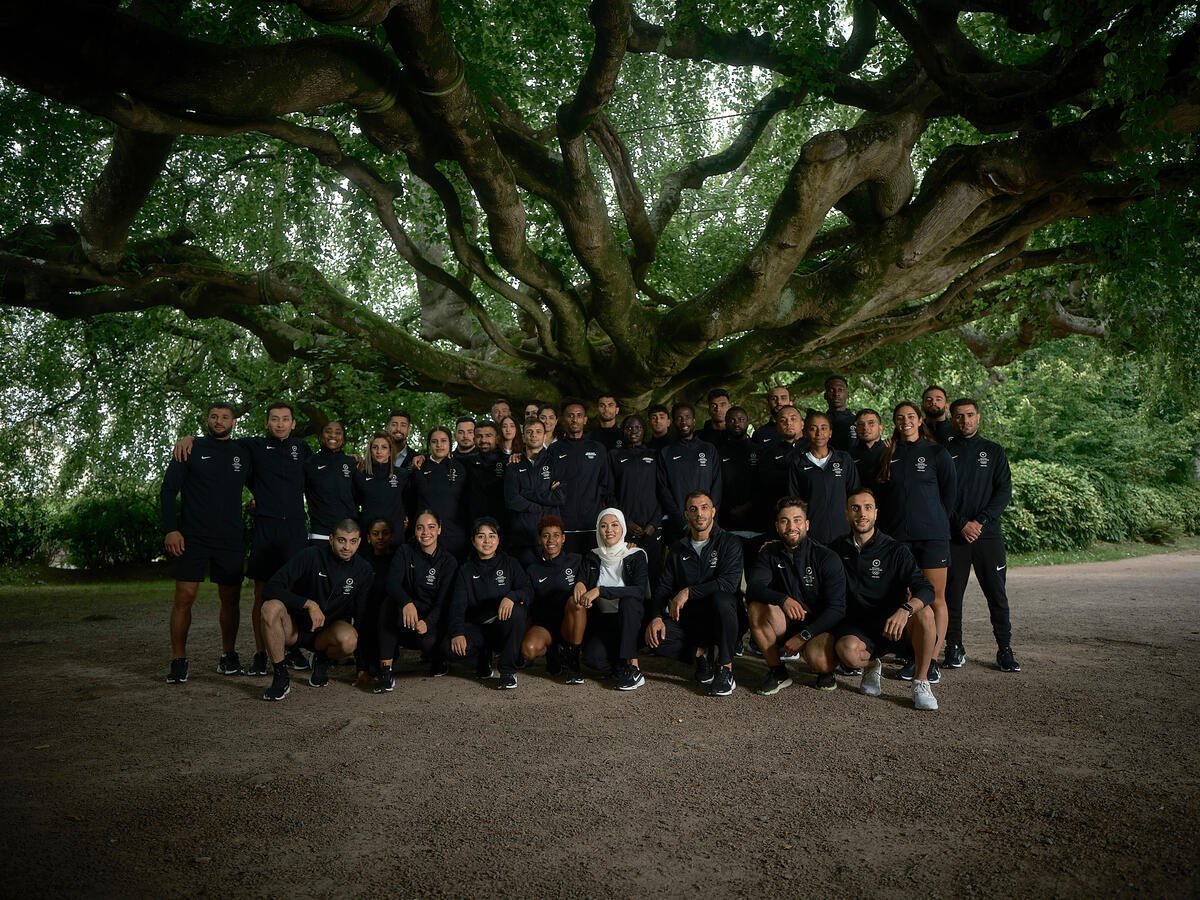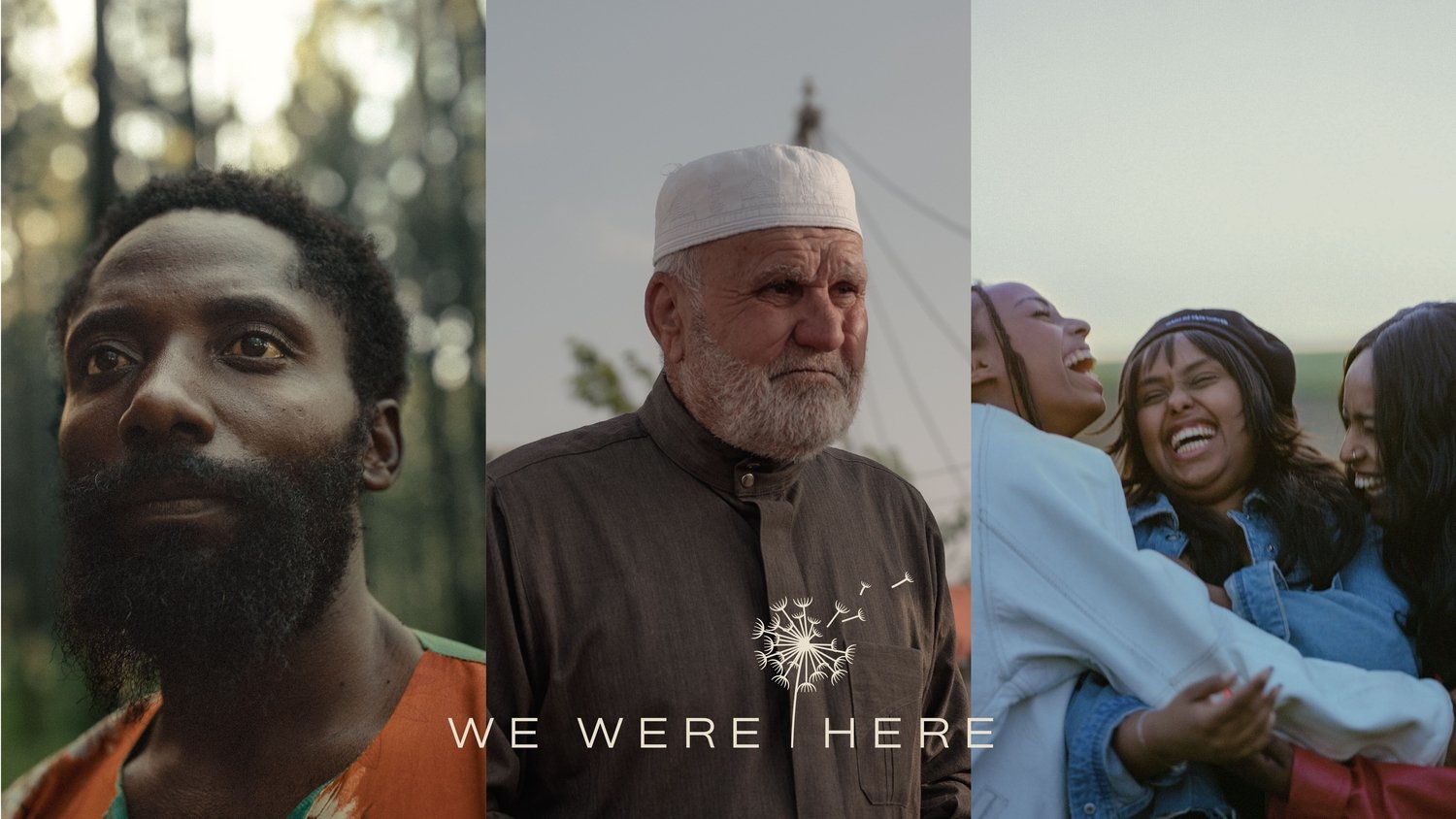UNHCR welcomes breakthrough for Iraq's refugees
UNHCR welcomes breakthrough for Iraq's refugees

AMMAN, Jordan, May 31 (UNHCR) - The UN refugee agency has welcomed a series of recent breakthroughs that should result in significant improvements to the safety and living conditions of thousands of refugees who had been living in Iraq at the time of the 2003 war.
On Sunday, all 743 refugees who had fled the conflict in Iraq and settled in an unofficial camp in the no man's land between Iraq and Jordan for the last two years were transferred to Ruweished camp 60 km inside Jordan.
"Although conditions in Ruweished are far from perfect, it is nevertheless distinctly preferable to the no man's land camp, which was difficult to access, potentially presented a considerable physical risk, and was under no state's jurisdiction," said UNHCR's Acting Representative in Jordan, James Lynch.
Among those relocated were some 50 Palestinians, many of whom were joining family members already living in Ruweished camp.
"UNHCR will now redouble its efforts to persuade states - either within the region or elsewhere - to provide solutions for all the people relocated from the no man's land and for the 127 people - mostly Palestinians - who were already housed in Ruweished," said Lynch.
A total of 643 of those relocated on Sunday are Iranian Kurds who had fled Al Tash camp near Ramadi in central Iraq. Al Tash hosted some 12,000 Iranian Kurds for more than 20 years, but since the 2003 conflict, residents have been facing security incidents, frequent water shortages, and reduced or interrupted services. Located in one of the most insecure areas of Iraq, the camp can only be visited sporadically by aid agencies including UNHCR.
A further 209 Iranian Kurds from Al Tash are still stranded in another unofficial encampment on the Iraqi side of no man's land.
However, in another very significant breakthrough, the Iraqi government has just informed UNHCR that it has approved a proposal to relocate Al Tash's remaining population - some 3,100 people - to a much safer location near Suleimaniyah in northern Iraq. Another 3,200 former Al Tash residents have already moved there on their own, and have been helped by the local authorities (which provided land), UNHCR and its partners to settle in.
The local authorities in Suleimaniyah have also approved the forthcoming relocation of the rest of the Al Tash population, and a recent study found that most of the camp's residents will be more than happy to make this move.
"We hope to start moving them in the coming weeks," said Yacoub El Hillo, UNHCR's Acting Chief of Mission in Iraq. "We've worked out a detailed plan involving partners like the Iraqi Red Crescent Society and a number of other national and international NGOs in close coordination with the Iraqi authorities. Once it gets under way, the actual relocation will be phased over about 10 weeks, security conditions permitting."
Meanwhile, in Baghdad, 400 Palestinian refugee families who were evicted from their homes after the fall of Saddam Hussein's government, and forced to live in tents in the middle of the city, have been found more suitable accommodation. After their eviction in mid-2003 - for lack of a better option - UNHCR helped set up a tented camp in Baghdad's Haifa Sports Club, but the Ministry of Displacement and Migration and the UN refugee agency were finally able to close down the camp last month when the last 138 people were moved into rented accommodation.
"These three developments in the space of just over a month are very significant," said UNHCR's El Hillo. "It's encouraging that after being blocked on so many fronts for so long, we are now seeing a series of breakthroughs of this type. The Al Tash relocation still has to be carried out, and the people in Ruweished have still to find a proper solution, but there is definitely progress taking place which should significantly improve the lives of thousands of very vulnerable refugees."









